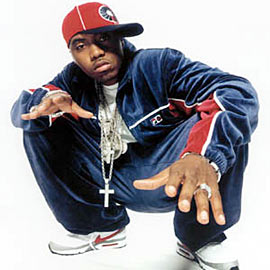The inception of Hip Hop culture occurred in the South Bronx of New York City in the late 1970s. In its earliest days, it was primarily an underground movement that empowered a group of individuals who, for all intensive purposes, were “voiceless” in the realms of American politics, government, economics, as well as other dimensions of our American society.
Now, nearly four decades later, the culture is globally recognized with millions of records being sold outside of the United States. As Hip Hop culture continues to grow and spawn around the globe, the world is becoming increasingly familiar with the socioeconomic effects that African-American entrepreneurship, conceivably in its purest form, can have on societies. Hip Hop music is now the resounding voice of the disenfranchised American collective, comprised predominantly of individuals who hail from “Main Street”, yet create lyrics and digital sounds that echo throughout the world and translate into financial gains that force those on “Wall Street” to lend an ear.
When one takes a closer look at the Hip Hop economy, several eye opening trends emerge. First, the music is being consumed by youth at an astounding pace. According to the NPD Group, an international market-research firm, more than 50% of people who purchase hip-hop albums are either in their teens or early 20s. In comparison, only 25% of rock and roll album sales and 17% of country music sales are made to that age group. Secondly, for those who are purchasing Hip Hop music, more than 70% are white. Thirdly, perhaps the most eye opening, is that, according to Forbes, hip hop as a music and lifestyle industry has become a 10 billion dollar a year industry.
These trends have not gone unnoticed. In fact, they have led professors within strict canonical circles to consider the culture and its music as not only a viable strategy for bridging the racial divide, but also a means for creating curricula that addresses popular culture in an effort to teach students how to analyze texts and write critically.
In fact, as UCLA Professor of Anthropology, H. Samy Alim, says, “It’s reinvigorating the academy.”
As a member of Generation X, I grew up on Hip Hop culture and embody it and what it represents throughout many dimensions of my life.
The music that has emanated from the culture has delivered numerous life lessons on how one must persevere, weather the trials and tribulations of life and institutional racism, and emerge with grace, poise, and a swagger on a “hundred, thousand, trillion.”

Thank God for giving us Hip Hop.
May the culture continue to evolve and generate exponential opportunity for individuals around the world.

